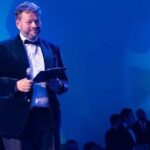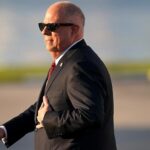
(Adds quotes, background)
By Jonathan Landay
WASHINGTON, April 3 (Reuters) – NATO Secretary-General Jens Stoltenberg on Sunday called the killing of civilians in Bucha, Ukraine, a “brutality” unseen in Europe for decades, and said their deaths reinforced the need for Russian President Vladimir Putin to halt the war.
“It’s horrific and it’s absolutely unacceptable that civilians are targeted and killed. And it underlines the importance … that this war must end,” he told CNN in an interview a day after Ukrainian forces moved into the town near Kyiv and found what officials and witnesses said were the bodies of nearly 300 civilians killed by Russian troops.
“That is President Putin’s responsibility, to stop the war,” Stoltenberg continued, adding that it was “extremely important” that the International Criminal Court pursue an investigation into “potential war crimes in Ukraine and that all facts are brought on the table.”
Those responsible, he continued, should be held accountable.
Stoltenberg said the departure of Russian troops from the Kyiv area was “not a real withdrawal. What we see is that Russia is repositioning its troops and they are taking some of them back to rearm them, to reinforce them, to resupply them.”
He cautioned against being “too optimistic because the attacks will continue.”
Stoltenberg called the Russian troop repositioning “a shift in strategy” to bring more force to bear on Ukraine’s south and east, where Russian forces and Moscow-backed separatists are fighting for control of the Donbas region.
Stoltenberg declined to say whether he believed Finland would join NATO following his recent discussions with Finnish President Sauli Niinistö, where public support for alliance membership has increased dramatically.
“It’s for Finland to decide,” he said, adding that Finns have “their right to decide their own future. That’s exactly what Russia do not expect because they actually try to intimidate and to say that if Finland decides to join NATO, there will be consequences.”
Should Finland and Sweden seek NATO membership, “I expect they will be welcome” and “we will find ways to do that in a relatively quick way,” he said. (Reporting by Jonathan Landay; Editing by Scott Malone, Lisa Shumaker and Marguerita Choy)




